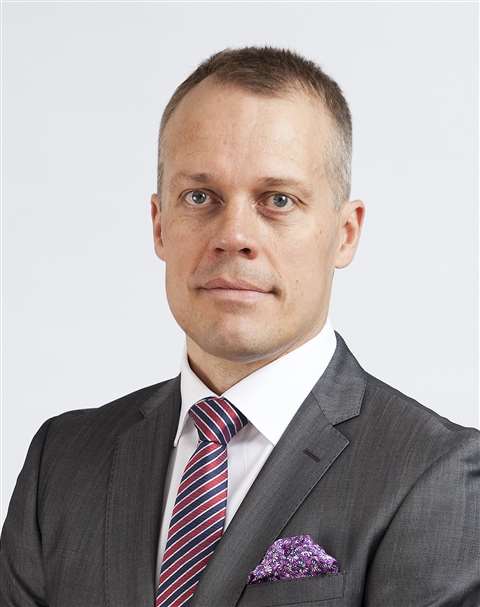Interview: Loxam/Ramirent acquisition
06 August 2019
The biggest potential merger in the history of the European rental market was recently set in motion when Ramirent recommended that its shareholders accept a €970 million acquisition bid from Loxam. The combined company would be the largest rental business outside North America, with joint revenues of €2.3 billion and activities in 22 European countries as well as the Middle East, Brazil, Colombia and Morocco.

Speaking exclusively with IRN, Loxam’s CEO Gérard Déprez says the main benefit of the proposed acquisition of Ramirent would be increased geographical diversification and security of earnings.
“Two years ago, 80% of Loxam’s business was in France. We had some pressure not to put all our eggs in one basket. With the move with Lavendon, the proportion of our business in France decreased to 60%. And now it will be 40%. So, it means we are more comfortable with the stability of our company.”
Loxam acquired UK-based Lavendon just the year before last, in 2017, but when asked if Loxam was ready to make another large acquisition so soon after, Déprez asserts that the time is right.
“We needed to be clear about the integration of Lavendon into our group and we needed to already start to decrease our debts. So the conditions are gathered, now, for such a move, because with the integration of Lavendon we are comfortable,” says Déprez.
He adds, “Ten years ago, with the size of the company it wasn’t possible. But with the recent move with Nationwide, it puts us in a good position. We have been in a successful process of integration and we are confident that we can make an approach to the company.”
One striking thing about the merger – given the size of the two businesses – is the almost total absence of geographical overlap, with the exception of Norway, where Loxam already operates five branches. Ramirent’s recent sale of its Danish operations to GSV eliminated the only other case where the two companies would have been competing directly.
Observing Ramirent
It was Loxam who approached Ramirent, after Déprez had observed the company for a long time.
“I have known Ramirent for many years. We could follow them, check if they have the same DNA as us,” says Déprez, adding, “These companies, with Loxam, each of them in their own geographical markets, they have a similar organisation, a similar way of working.”
However, he says there would not be significant cost savings in combining the two businesses. Although a few million euros might be saved in IT, and there could also be some innovation synergies with ideas being transferred from one country to another, Déprez says, “The reason is not to increase the profitability of Loxam Group; it is just to make it more comfortable.”
He goes on to say, “We will keep the same management, the same structure – it will be a decentralised company. So, my interest is not to get synergies, but just to have more visibility and diversity of our revenue; to be more comfortable and not depend too much on a particular market.”
For this reason, Ramirent would remain largely unchanged. Déprez says that even the brand name would be kept.
“If the company was not profitable, if the company had some problems, okay, I would have to change it and solve the problems,” says Déprez, but this is not so; “This company is good, it is well managed, profitable, it has a strategy to grow, it’s ambitious.”
He adds, “When the business is good, and we have the same philosophy about sustainability and our people, I have no reason to change it because we need to have these people.”
Although the combined business would be three times the size of its nearest competitor, Déprez reminds us that the rental landscape is in constant flux, with consolidations taking place all the time, so the relative size will change in the future – even the near future.
Whether this move would trigger other large mergers as a response from competitors is hard to predict, but Déprez says, “When we make these moves, we don’t change the rationale of the market because our business is very local. So, it doesn’t matter what happens in France for what is happening in Spain or Italy. We will not change anything in the Nordic countries. So okay, there’s a substitution – we’re a global company – but we don’t change position, we don’t change the market, we don’t change the trend, we don’t influence so much the competition.”
Pan-European
Even though a larger pan-European company would be created, Loxam’s operations would remain local; “We make our business very local. And even for big companies, they make local purchases. There is decentralisation in construction.”
That said, there are multinational customers who would benefit from the reassurance that they would be getting the same service in different regions.
The 65% premium offered by Loxam on Ramirent’s shares might seem high, but Déprez is confident this represents good value for money, saying Loxam’s perspective on value is different to that of the shareholders because it is looking ahead ten years.
“The public market has a view of the value of a company – a view attached to the situation of the short- and middle-term. At Loxam, we have another view,” says Déprez, “The value we give is not attached to the value given by the market; it is given by what is a convenient price for a strategic buy.
“This price is a [normal] price, for me, because we are used to buying companies and this company is a leading company.”
Post-transaction, Loxam’s estimated net financial debt would be €3.7 billion. Déprez says the company is comfortable with its strategy and its indebtedness.
“After such a move, we are committed to decrease our ratio, but it’s more attached to the economic situation,” he says. When the economic situation is good, he explains, debt tends to rise because of the need to invest to sustain growth. When business conditions are tighter, debt is likely to drop because there is no need to grow the fleet.
“It is a paradox of our business: when business is good, debt increases; when business is not good, debt will decrease,” says Déprez.
Looking ahead, what future expansion plans might Loxam have beyond the acquisition of Ramirent?
“We have always said that we are interested in European firms, and to reinforce our local position with bolt-ons,” he tells IRN, “Now with this move, I have comfort. The next step, we will see.”
He says the company expanded into the Brazilian market in 2015 with the part-acquisition of Degraus in order to have operations outside of Europe for when the European market slowed down. However, at present, the European market is healthy and so there is no rush to grow elsewhere.
“But in the next 50 years of Loxam, we can imagine we will grow outside. But not right now. Right now, there is work at hand. To keep this company attached to our group and then to deleverage our indebtedness: that is the clear strategy for the coming years.”

Stars aligning
Speaking immediately after the deal and before the announcement about his intention to leave the business, President and CEO of Ramirent, Tapio Kolunsarka, tells IRN that he is confident Ramirent would have the potential to further accelerate its growth and development under the ownership of Loxam, while adding an important Nordic and Eastern European dimension to Loxam’s international presence.
“If you look at Loxam’s growth trajectory over their history, it strongly signals their focus and appetite on continued, fast growth,” Kolunsarka says. “At Ramirent, we have been in recent years primarily focusing on improving our returns and shaping our business portfolio through divestments and acquisitions. Consequently, I believe that given where Ramirent is today, we have good possibilities to accelerate our growth.”
Kolunsarka says that the substantial premium offered by Loxam reflects its strong belief in Ramirent’s potential to create value in the future.
“With our leadership position in all of our markets in Scandinavia, Eastern Central Europe and the Baltic countries, Ramirent is ideally positioned to drive growth in equipment rental and related services,” says Kolunsarka.
When asked about whether he expects competitors to respond by instigating other big mergers, Kolunsarka says that the rental industry is characterised by mergers and acquisitions; “However, the number of possible ‘big move’ mergers are rather limited in our industry, so it is difficult to predict those. It takes quite a lot of stars to be aligned in the right way for the big moves to make sense for both companies and their respective owners.”
| Merger in numbers |
|---|
2018 REVENUES Loxam: €1,522 million Ramirent: €774 million Combined: €2,296 million Total size of European market: €26.6 billion (Loxam/Ramirent market share would be 8.6%)
2018 EBITDA Loxam: €514 million Ramirent: €234 million Combined: €748 million
STAFF Loxam: 8,000 Ramirent: 2,900 Combined: 10,900
DEPOTS Loxam: 766 Ramirent: 294 Combined: 1,060 |




